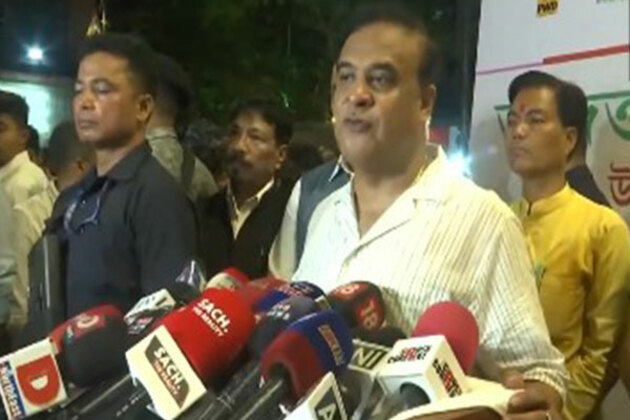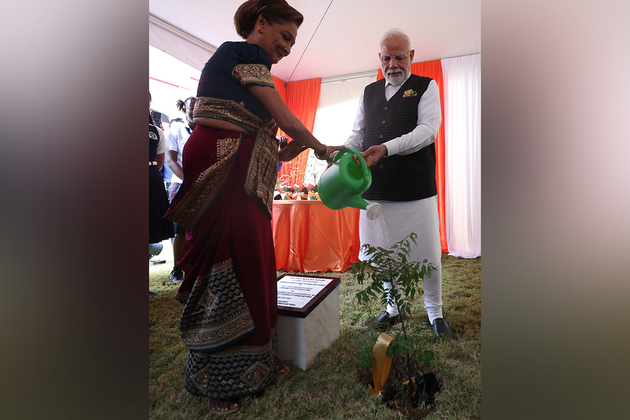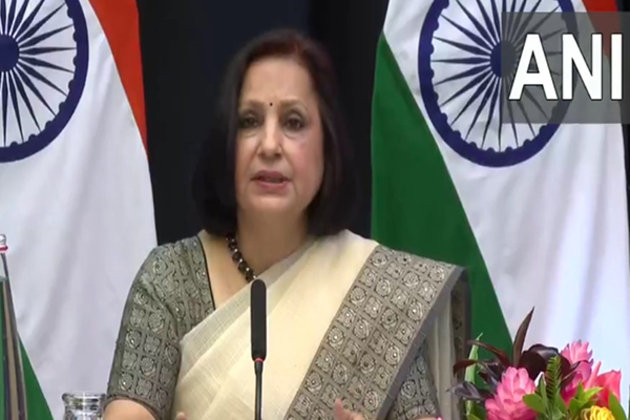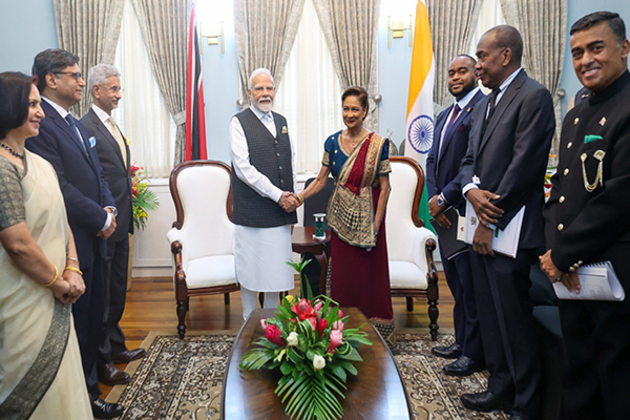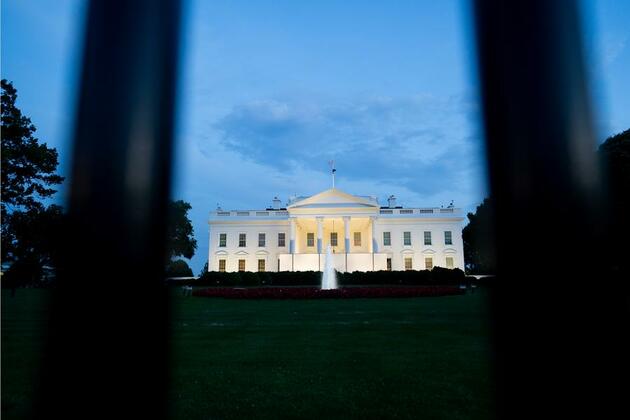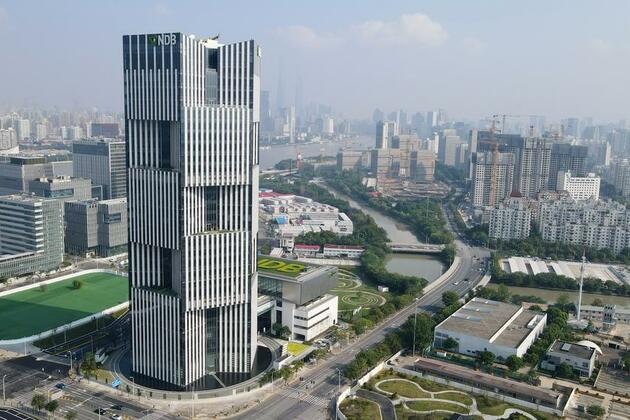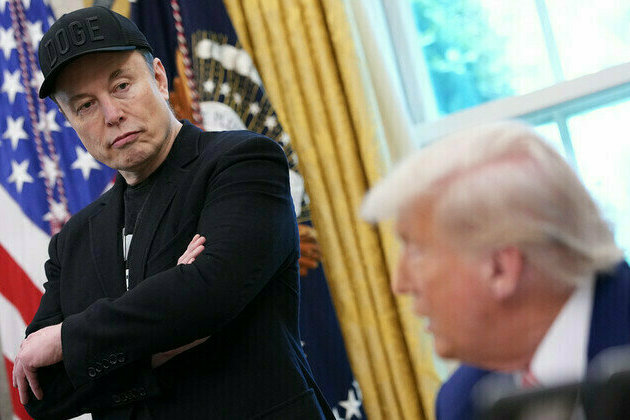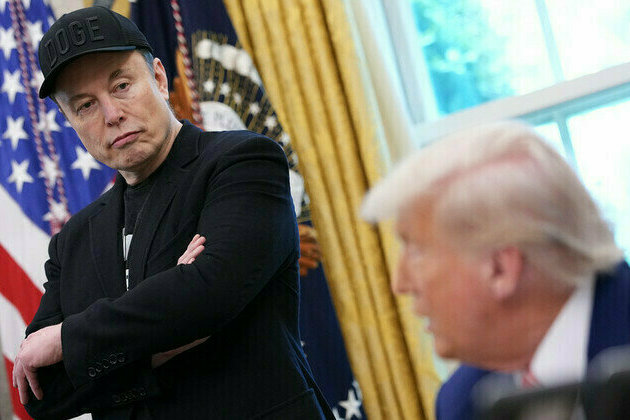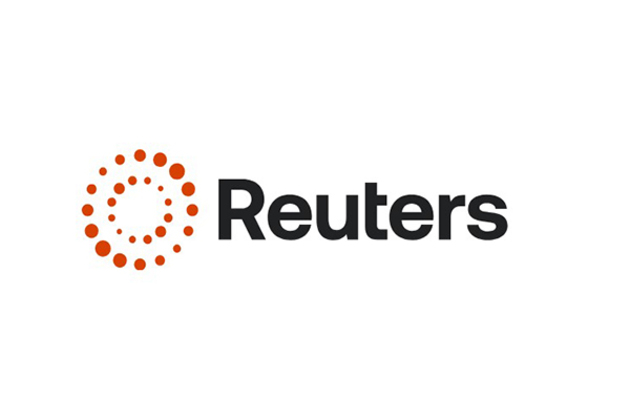New US directive for visa applicants turns social media feeds into political documents
The Conversation
07 Jul 2025, 01:41 GMT+10

In recent weeks, the US State Department implemented a policy requiring all university, technical training, or exchange program visa applicants to disclose their social media handles used over the past five years. The policy also requires these applicants to set their profiles to public.
This move is an example of governments treating a person's digital persona as their political identity. In doing so, they risk punishing lawful expression, targeting minority voices, and redefining who gets to cross borders based on how they behave online.
Anyone seeking one of these visas will have their social media searched for "indications of hostility" towards the citizens, culture or founding principles of the United States. This enhanced vetting is supposed to ensure the US does not admit anyone who may be deemed a threat.
However, this policy changes how a person's online presence is evaluated in visa applications and raises many ethical concerns. These include concerns around privacy, freedom of expression, and the politicisation of digital identities.
The Trump administration has previously taken aim at higher education with the goal of changing the ideological slant of these institutions, including making changes to international student enrolment and the role of foreign nationals in US research institutions.
Digital rights advocates have expressed concerns this new requirement could lead to self-censorship and hinder freedom of expression.
It is unknown exactly which specific online actions will trigger a visa refusal, as the US government hasn't disclosed detailed criteria. However, guidance to consular officers indicates that digital behaviour suggesting "hostility" toward the US or its values may be grounds for concern.
Internal advice suggests officers are trained to look for social media content that may reflect extremist views, criminal associations or ideological opposition to the US.
In a sense, this policy turns a visa applicant's online presence into a kind of political passport. It allows for scrutiny not just of past behaviour but also of ideological views.
Digital identity is not just a technical construct. It carries legal, philosophical and historical weight. It can influence access to rights, recognition and legitimacy, both online and offline.
Once this identity is interpreted by state institutions, it can become a tool for control shaped by institutional whims. Governments justify digital surveillance as a way to spot threats. But research consistently shows it leads to overreach.
A recent report found that US social media monitoring programs have frequently flagged activists and religious minorities. It also found the programs lacked transparency and oversight.
Digital freedom nonprofit Electronic Frontier Foundation has warned these tools risk punishing people for lawful expression or for simply being connected to certain communities.
The US is not alone in integrating digital surveillance into border security. China has implemented social credit systems. And the United Kingdom is exploring digital ID systems for immigration control. There are even calls for Australia to use artificial intelligence to facilitate digital border checks.
The United Nations has raised concerns about the global trend toward digital vetting at borders, especially when used without judicial oversight or transparency.
These new checks could have a chilling effect on self-expression. This is particularly true for those with views that don't align with governments or who are from minority backgrounds.
We've seen this previously. After whistleblower Edward Snowden revealed widespread use of data gathering by US intelligence agencies, people stopped visiting politically sensitive Wikipedia articles. Not because they were told to, but because they feared being watched.
This policy won't just affect visa applicants. It could shift how people use social media in general. That's because there is no clear rulebook for what counts as "acceptable". And when no one knows where the line is, people self-censor more than is necessary.
If you think you might apply for an affected visa in the future, here are some tips.
1. Audit your social media history now. Old posts, "likes" or follows from years ago may be reviewed and judged out of context. Review your public posts on platforms such as Instagram, Facebook and X. Delete or archive anything that might be misconstrued.
2. Separate personal and professional online identities. Consider keeping distinct accounts for private and public engagement. Use pseudonyms for creative or informal content. Immigration authorities are far less likely to misinterpret context when your online presence is clearly tied to your educational or professional goals.
3. Understand your online visibility and history. Even if you have privacy settings enabled, tagged content, public "likes", comments and follows can still be seen. Algorithms expose content based on associations, not just what you post. Don't assume your visibility is limited to your followers.
4. Keep records of any deleted or misinterpreted posts. If you think something might be questioned or if you delete posts ahead of an application, keep a backup. Consular officials may request clarification or evidence. It's better to be prepared than to be caught off-guard without explanation.
Your social media is no longer a personal space. It may be used by governments to determine whether you fit in.
 Share
Share
 Tweet
Tweet
 Share
Share
 Flip
Flip
 Email
Email
Watch latest videos
Subscribe and Follow
Get a daily dose of International Technology news through our daily email, its complimentary and keeps you fully up to date with world and business news as well.
News RELEASES
Publish news of your business, community or sports group, personnel appointments, major event and more by submitting a news release to International Technology.
More InformationComputers
SectionPM Modi to inaugurate new terminal of Guwahati airport in November: Assam CM
Guwahati (Assam) [India], July 6 (ANI): Prime Minister Narendra Modi is set to inaugurate the new terminal of Guwahati's Lokpriya Gopinath...
PM Modi congratulates Trinidad and Tobago on adopting UPI
Port of Spain [Trinidad and Tobago], July 5 (ANI): Prime Minister Narendra Modi paid an official visit to Trinidad and Tobago from...
India to gift 2000 laptops to school students in Trinidad and Tobago, extends OCI Card facility up to 6th generation: MEA
Port of Spain [Trinidad and Tobago], July 5 (ANI): During his visit to Trinidad and Tobago Prime Minister Narendra Modi made a number...
India-Trinidad Tobago sign six MoUs to boost cooperation
Port of Spain [Trinidad and Tobago] July 5 (ANI): India and Trinidad and Tobago have signed six agreements during Prime Minister Narendra...
Roundup: Trump targets foreign tourists with higher national park fees
President Trump has ordered higher entrance fees for foreign visitors to U.S. national parks, sparking concerns from environmental...
MP: CM Yadav transfers laptop grants of Rs 235.58 crore to 94,234 meritorious students
Bhopal (Madhya Pradesh) [India], July 4 (ANI): Chief Minister Mohan Yadav on Friday transferred Laptop grants worth Rs 235.58 crore...
Internet
SectionMeta hires SSI CEO Gross as AI race intensifies among tech giants
PALO ALTO/TEL AVIV: The battle for top AI talent has claimed another high-profile casualty—this time at Safe Superintelligence (SSI),...
Daily World Briefing, July 7
China ready to promote flagship Belt and Road project, boost trade, investment with Ethiopia -- Premier Li China stands ready to...
Musk explained why he changed his stance on Trump
Donald Trumps decision to increase the budget deficit instead of cutting costs has become the last straw, the billionaire says Elon...
Musk explains why he changed his stance on Trump
Donald Trumps decision to increase the budget deficit instead of cutting costs has become the last straw, the billionaire says Elon...
New US directive for visa applicants turns social media feeds into political documents
In recent weeks, the US State Department implemented a policy requiring all university, technical training, or exchange program visa...
X accounts of Reuters, TRT World, Global Times restored in India
New Delhi [India], July 7 (ANI): The X accounts of UK-based news agency Reuters, Turkish broadcaster TRT World, and China's English...

